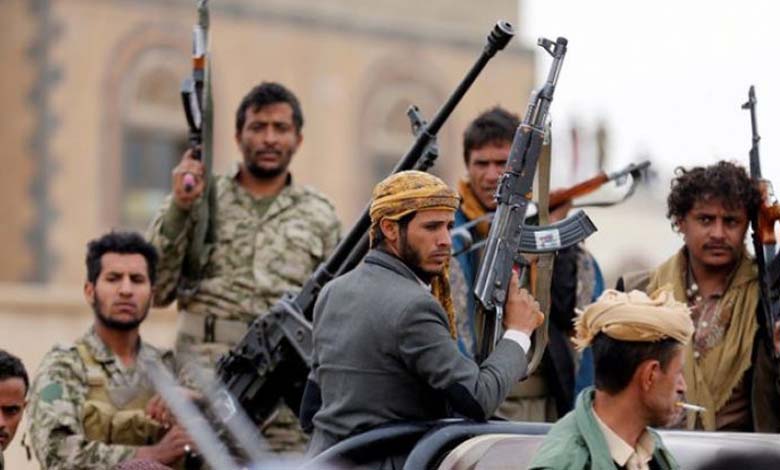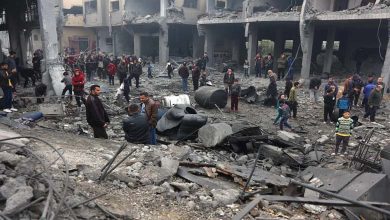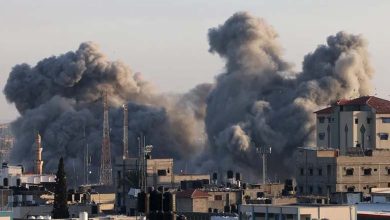Political Calculations Behind Houthis’ Release of Dozens of Prisoners
The Houthis are focusing their efforts on expanding their targeting of ships, now including the Mediterranean Sea and the Arabian Sea in addition to the Red Sea

The International Committee of the Red Cross in Yemen announced on Sunday that 113 detainees were unilaterally released, an initiative that observers say carries political messages to Saudi Arabia, signaling their readiness for dialogue and de-escalation while escalating their attacks on ships spanning three seas.
The Red Cross stated: “Today, in Sana’a, Yemen, 113 detainees were released in connection with the conflict in a unilateral operation. The International Committee of the Red Cross provided support to the detainees to ensure their release in a humane and dignified manner.”
On Saturday, the Houthis announced their intention to release prisoners from forces loyal to the Yemeni government. Abdel Kader Mortada, head of the Houthi Prisoners Affairs Committee, said in a statement on Friday that they would release 100 government forces’ prisoners on Saturday.
For its part, the Yemeni government commented on the group’s initiative on Saturday, accusing them of evading their obligations regarding prisoners and detainees.
In a post on platform X, Yahya Kazman, head of the government delegation for prisoner and detainee negotiations, said: “The Houthi militias are evading their commitments regarding the prisoners.”
He added in a post on X that the Houthis “are moving towards creating obvious and exposed theatrical acts by kidnapping citizens from their homes, workplaces, universities, and roads.” He explained, “the group uses these individuals as a means of political pressure and blackmail,” noting that the initial steps in resolving the issue begin with the militias revealing the fate of the missing persons.
Both parties have previously carried out several prisoner exchanges through local and international efforts. In 2018, during UN-sponsored consultations in Sweden, both parties presented lists containing the names of over 15,000 prisoners, detainees, and abductees.
There is no accurate count of the number of prisoners on both sides, especially since more have been captured after that date.
On March 20, 2023, the Yemeni government and the Houthis agreed to release 887 prisoners and detainees from both sides, at the end of consultations held in Switzerland.
On April 16, 2023, the legitimate government announced the completion of the first phase of a prisoner exchange with the Houthis, involving about 900 prisoners from both sides, following consultations held in Switzerland on March 20.
Among those released were several prisoners of the Arab coalition, Nasser Mansour (brother of former president Abd Rabbo Mansour Hadi), former defense minister Mahmoud Al-Subaihi, the children of former vice president Ali Mohsen Al-Ahmar, and the children of vice president of the leadership council, General Tariq Mohammed Abdullah Saleh.
Observers noted that the Houthis‘ initiative is an undeclared attempt at de-escalation, focusing their efforts on expanding their attacks on ships in the Mediterranean Sea, the Arabian Sea, and the Red Sea.
On Friday, the Houthis announced targeting two Israeli ships in the Arabian and Mediterranean seas, and a third ship in the Red Sea belonging to a Greek company that had previously delivered ships to Israeli ports.
This was stated by the military spokesman for the Houthi forces, Yahya Sari, during a demonstration attended by thousands in Sana’a, in solidarity with Gaza.
Sari said: “The Yemeni armed forces (affiliated with the Houthis) carried out three specific operations on three ships in the Red Sea, the Arabian Sea, and the Mediterranean Sea.”
The U.S. Central Command stated on Friday that the Houthis launched two anti-ship ballistic missiles into the Red Sea on May 23, with no reports of injuries or damage. Navigation data showed that the liquefied petroleum gas tanker “Essex,” flying the Liberian flag, was anchored off the port of Alexandria, Egypt, in the Mediterranean Sea on Friday.
The conflict in Yemen erupted in 2014 when the Houthi rebels took control of vast areas in the north of the country, including the capital Sana’a. The following year, Saudi Arabia intervened at the head of a military coalition in support of the legitimate Yemeni government.
According to the UN, the conflict has caused hundreds of thousands of deaths due to direct and indirect causes, including hunger, disease, and lack of drinking water, pushing many to flee their homes.












